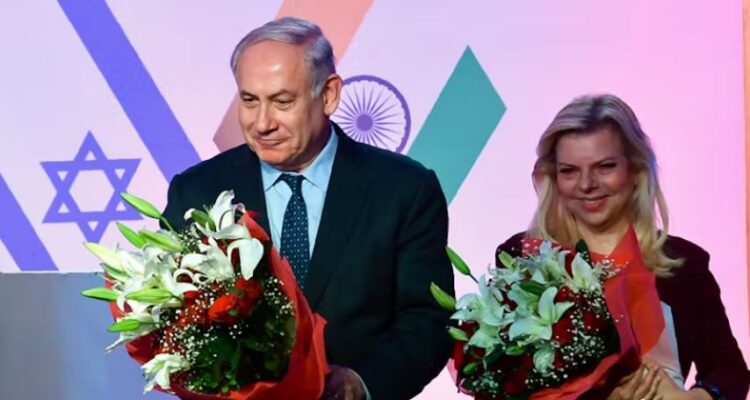India and Israel dance a masterful pas de deux
The International Film Festival of India was held in Goa in November. The Kashmir Files, an Indian entry, deals with the emotionally charged story of the ethnic cleansing of Kashmiri Hindus by Muslim militants in the 1990s. Jury chair Nadav Lapid, an Israeli film maker, criticised it as ‘a propaganda, vulgar movie inappropriate for an artistic competitive section of a prestigious film festival’. As social media trolls launched a vicious counter-attack, Israel’s ambassador Naor Gilon tweeted an open letter in a lengthy thread, criticising Lapid for irresponsible comments that had abused the host country’s hospitality and complicated his mission. On 1 December, President Isaac Herzog inaugurated an exhibition of Indian sculptures at the Israeli Museum in Jerusalem. ‘India and Israel are natural allies, united by a fundamental commitment to the democratic ideals upon which both our nations were founded’, he said.
Gilon’s tweet and Herzog’s speech mark a sea change from the early decades after India’s independence and Israel’s creation in 1947/48. Then, Israel was Exhibit A for my thesis that India never let interests come in the way of principles. One of the earliest to recognise Israel, India did not establish full ambassadorial relations until 1992. The hesitation was rooted in pre-independence sympathy for the Arabs by the Congress Party, a perception of Israel as a settlement imposed upon Palestinians by outgoing colonial powers, the many Arab votes at the UN against the solitary Israeli vote, an attempt to undercut Arab support to Pakistan, and deference to the sentiments of the sizeable minority of Indian Muslims. Sometimes the non-policy degenerated into petulance. The Jerusalem Symphony Orchestra was scheduled to perform in Bombay and New Delhi in 1993. India, describing Jerusalem as a disputed city, insisted that the orchestra drop ‘Jerusalem’ from its name. The orchestra cancelled the visit instead.
Read the article by Ramesh Thakur in The Spectator.

